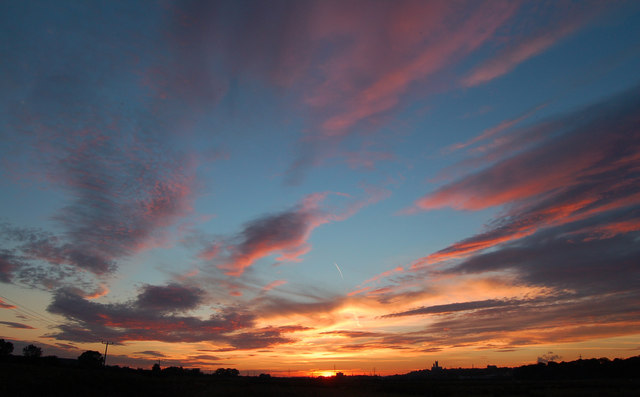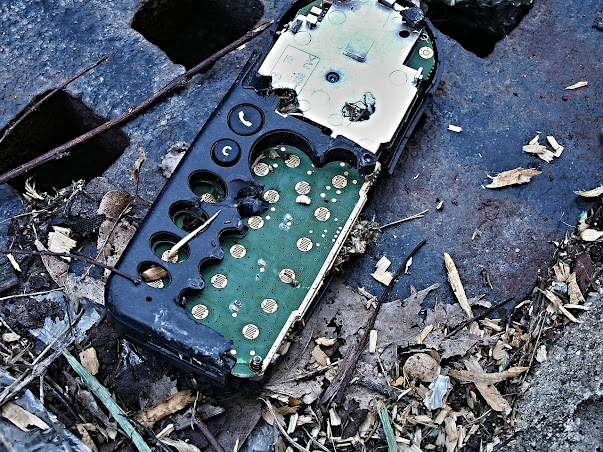Anxiety is physical
What made me aware of being anxious was the physicality of meditation.
You may not think of it as a physical experience, but try it yourself and you'll find that whatever your mind is doing, sitting still in one position for twenty-five minutes makes you all too aware of the tensions in your body. It hurts.
Not only that, but the experience of doing it every day for a few weeks or months (or for the whole of a weekend on retreat) makes it absolutely clear that your body and mind are not really different things. They are different ways to describe one thing. That the tension in your muscles is the tension in your mind. And the other way around. They don't just make each other, store each other, reinforce each other, they are the same thing. Like a city threatened by outside forces, the physical wall and the psychological strategy are a single defence.
The signs I didn't see
There were clues: The way I felt the need to take a deep breath every now and then. The fact that I didn't dare to speak if I didn't know what was expected. The headaches, the arches ground in my upper teeth during the night. The stoop in my upper back that made me have to crick my neck backwards to see straight ahead. The hardness in my thighs that never left.
I remember a piano lesson at school when I was maybe six, when the teacher was perplexed that I never relaxed my legs. I remember the day when the pink lycra'd teacher laughed at me for reaching thigh burn before my white-haired mother. I was much fitter than she was, it was just that I had spent the last thirty years bracing my legs against imminent attack. No wonder they were easily tired.
And there's the claustrophobia: My discomfort with tight ski hats, Oxford Street on a weekend and the New York Metro. My instinctual avoidance of a one way crawl tunnel into the pyramid of Chichen Itza to see the jaguar throne. There was the time when my headaches were being investigated and I couldn't lie still in the CT machine for long enough for a useful result. And all the times I couldn't fall sleep with my head in my soul-mate's arms.
Calm
Bizarrely I thought of myself as less anxious than most people. I'd be the one reassuring a friend or colleague about some imaginary conspiracy theory or a skewed interpretation of other peoples' motives. People at work noticed how calm I seemed. I knew I wasn't calm inside, but I didn't label it anxiety. I don't know what I thought it was. Normal, I suppose. As I gradually became the boss, I saw my main job as containing the anxiety of the rest of the team. Which means deliberately never letting myself indulge it. That probably looks like calm.
I became proud of my physical strength and unlike many of my peers had no trouble motivating myself to exercise regularly. I might even have done my year of forensic psychiatry to develop a strategy to calm mentally ill murderers. If I could do that, what could I have to fear from other people?
My first big psychiatry interview was in the panelled board room of one of the big asylums around Greater London. They are more like villages than hospitals, with a chapel, a pub, a factory, and set down in a refreshingly unspoiled green space. The dark wooden stairs creaked as I walked up to an impressively wide landing. The door was heavy and I regretted wearing heels. Tables had been arranged into a half-square to accomodate the eight perceptive strangers ready to interrogate me. I sat down in the lion's den. The chairman smiled and introduced them one by one but I didn't take it in at all.
As I may have mentioned once or twice, I've never been able to perform well at interviews. My voice turns itself down a few decibels and the words that come out are as minimal as politeness allows. I want to say I don't know. I don't know the answer to your question. I don't know what you want me to say. I don't know who I am and what I want and you're asking me to act as if I do. Don't make me do this.
I'm sure the panel will have asked me all sorts of standard questions but the one I remember from a distance of thirty-five years was the one from a bearded man who hadn't said anything. He had a different professional feel to him, warmer, bearded in an era when that was unusual, more open to the possibilities. He told me his would be the last question, and asked me which patients I found most difficult.
'The very anxious people.' There was no doubt there at all. With a very anxious person in the room with me I felt shamefully impatient. An urgent need to shut them down and get them out.
'And why is that?'
'Because I catch it.'
'And why is that?'
'I suppose I tend to be anxious myself. As you can see.'
There were the movements of relief around the room, as if the whole panel of psychiatrists had been holding their breaths, waiting for the moment I would admit it. That was when I knew.
Avoiding uncertainty
The day to day variation in my mood and motivation worried me. I had a strategy of always working out the why of things. I would be stuck in a limbo of uncertainty until I found a reasonable explaination for the difference. Perhaps I'd eaten two brownies on an empty stomach or overdone it in the exercise class. With a reasonable explanation I could put it behind me and move on. It didn't really matter if it was true, what mattered was that it brought relief. It was only when A commented that he didn't usually know why he felt the way he felt that I started to understand it as a defence against the uncertainty.
It never lasts though, does it, the relief of certainty? All around me are people who are certain but wrong. And I don't want to be wrong. So back I dive into the I-must-work-it-out. I must have a strategy and a keep my body ready for what comes. As if there were something coming that I couldn't cope with better when relaxed.
Getting tired of the bullshit
I'm remembering a line from Elizabeth Gilbert's Big Magic about transformations beginning with us 'getting tired of our own bullshit'. The difficult first step is to see it for the bullshit it is.
I remember when our insurance company told us that to have an affordable premium we had to put locks on the windows. I was washed through by a wave of unexpected grief at the loss of freedom and connection with the air outside. Like city walls, locks restrict the people inside more than anyone on the outside.
All at once I saw the stark exchange I had made of free belonging in the world for an artificial safety.
An artificial safety that may not even be necessary.
And now, sitting on a meditation cushion I'm painfully aware of how the aching hunch of my shoulders, my wrong-headed defence against uncertainty, has lost me so much of my life.

.jpg)


Comments
Post a Comment
Tell me what you think about this idea, your experiences, or just what comes to mind when you read this.